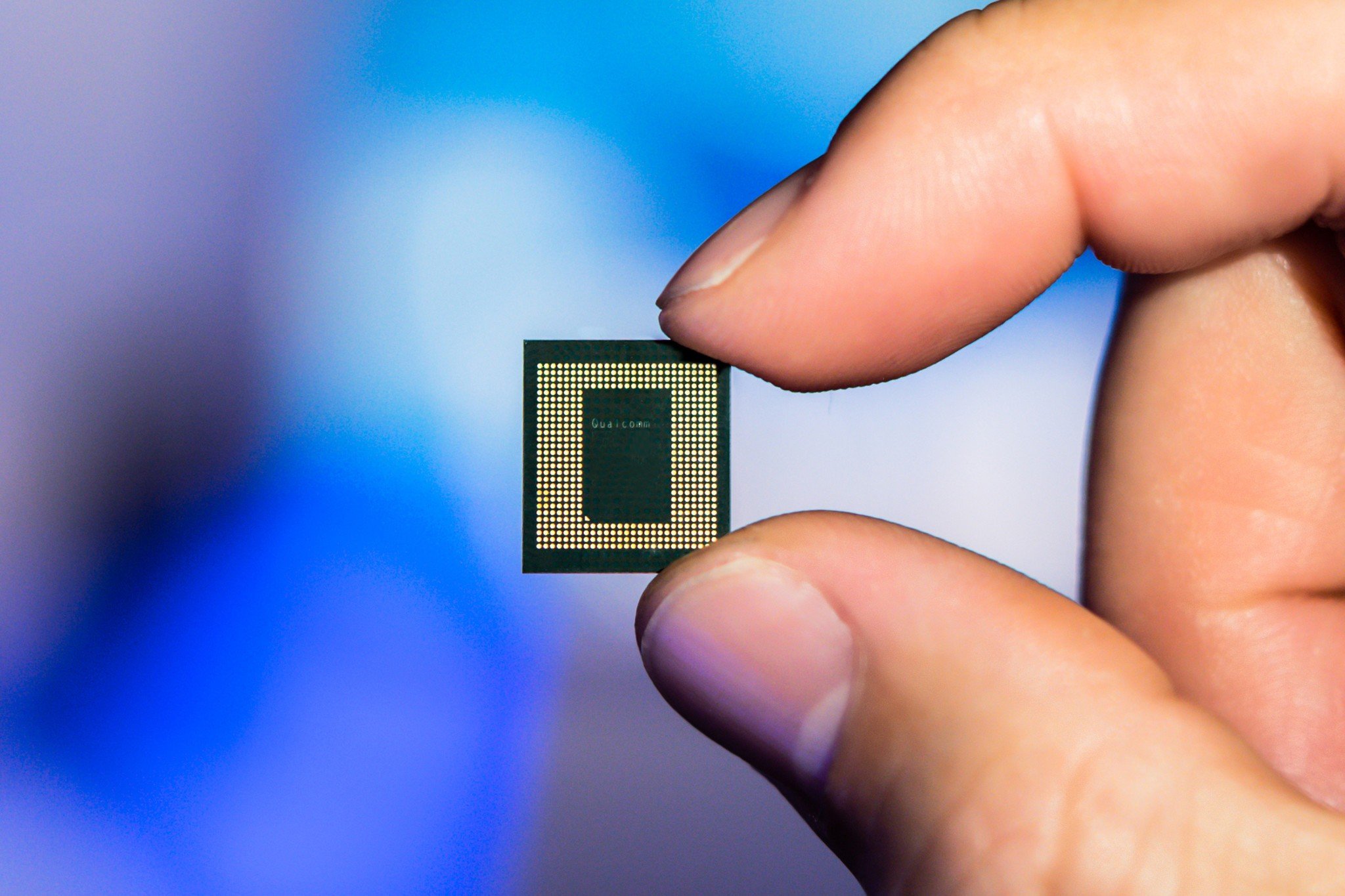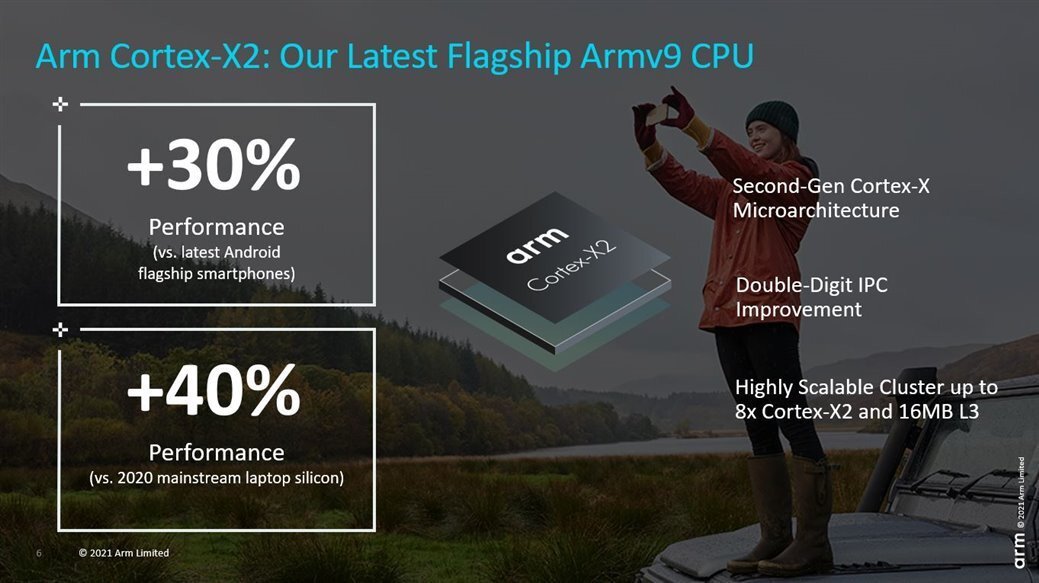Arm unveils Armv9 Cortex CPUs that will power the next generation of smartphones and PCs
Arm has big plans for its Armv9 architecture, and it all starts with the CPUs announced today.

Updated May 25, 2021: This piece has been updated to clarify that all Cortex-A CPU mobile cores will be 64-bit from 2023.
What you need to know
- Arm announced new CPUs based on its Armv9 architecture.
- The company also announced several Mali GPUs.
- Arm also specified that all Cortex-A CPU mobile cores will be 64-bit by 2023.
Arm announced the first Armv9 Cortex CPUs, which could bring a big boost to Windows 10 on ARM PCs and other devices. The chips are based on the new Armv9 architecture that was announced back in March and deliver up to 30% better performance than their predecessors. Arm also reiterated that all Cortex-A CPU mobile cores will be 64-bit by 2023.
Arm's Total Computer Strategy has three pillars; accelerating compute performance, expanding security, and improved developer access. Arm calls the new Armv9 Cortex CPUs the "foundation of [its] wider Total Computer Strategy."
The flagship processor from the new lineup is the Cortex-X2. It promises 30% better performance over the first-generation Cortex X-1 and can be used in either smartphones or laptops. Arm claims that the Cortex X-2 delivers 40% better performance than "mainstream laptop silicon," specifically referring to the Intel Core i5-1135G7.
Laptop manufacturers can combine up to eight Cortex X-2 cores to improve performance. For comparison, most phones that use the Cortex X-1 have a cluster of three high-performance cores. You may not recognize the name of the Cortex-X1, but you'll have heard of devices that utilize it. The flagship Snapdragon 888 is built with the Cortex X-1. Arm explains that the Cortex X-2 takes things a step further than its predecessor.
The Cortex X-2 will be used in both smartphones and laptops. Arm discusses the growing demand for Windows and Chrome laptops powered by its chips:
We have seen great momentum this past year in the laptop market for both Windows and Chrome laptops that are based on Arm technology. This drive for performance in the laptop market is reflected through the Cortex-X2, which is capable of delivering 40 percent single-threaded performance improvements over 2020 mainstream laptop devices.

Arm also announced the Cortex-A710 CPU, which focuses on efficiency. It is the first "big" CPU (referring to "big.LITTLE chips) that's based on the Armv9. It delivers 30% better energy efficiency. Arm also states that it delivers double the machine learning performance when compared to the previous generation.
Get the Windows Central Newsletter
All the latest news, reviews, and guides for Windows and Xbox diehards.
Lastly, the new Cortex-A510 is a "little" CPU. Its predecessor, the Cortex-A55, was made four years ago, so it's been some time since a refresh to Arm's little processors. The Cortex-A55 delivers 35% better performance and 20% more energy efficiency than its predecessor. It also has three times better performance when it comes to machine learning. Arm claims that the Cortex-A55 has similar performance to Arm's big cores from a few years ago.
Moving over to GPUs, Arm announced the Mali-G710, a premium GPU that brings a 20% performance improvement for general compute tasks as well as 20% better power efficiency. It's also 35% better for machine learning. The GPU can be configured with between seven and 16 shader cores, each of which doubles the performance of what the Mali-G78 offered.
Arm also announced the Mali-G610, which is a "sub-premium" GPU. Its feature set is the same as the Mali-G710, but it only has between one and six shader cores.
The Mali-G510 follows the Mali-G57 and delivers a 100% improvement for performance and machine learning. It also improves energy efficiency by 22%. Below the Mali-G510 is the Mali-G310.
Not coming this year
As to when chips based on Armv9 Cortex CPUs will be available, don't expect them anytime soon. Companies like Qualcomm, MediaTek, and Samsung still need to implement software, drivers and further design and manufacture the chips, pushing these chips out to 2023.
But, not all is lost. Laptop processors based on the 5nm Cortex-A78C designs are expected later this year, possibly being used in Qualcomm's anticipated Snapdragon 8cx Gen 3 and Microsoft's SQ3 processors. The current generation of Qualcomm Snapdragon 8cx Gen 2 is based on the 2018 7nm Cortex-A76. While not as potent as Apple's 5nm M1 silicon, laptop processors based on Cortex-A78C should provide a much more robust boost in performance than current Gen 2 designs and up to 3x the performance of Snapdragon 8cx Gen 1 rivaling Intel's 10th Gen Core i7-10875H.

Sean Endicott is a tech journalist at Windows Central, specializing in Windows, Microsoft software, AI, and PCs. He's covered major launches, from Windows 10 and 11 to the rise of AI tools like ChatGPT. Sean's journey began with the Lumia 740, leading to strong ties with app developers. Outside writing, he coaches American football, utilizing Microsoft services to manage his team. He studied broadcast journalism at Nottingham Trent University and is active on X @SeanEndicott_ and Threads @sean_endicott_.
